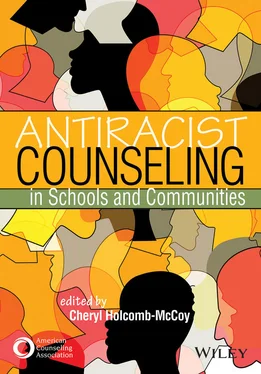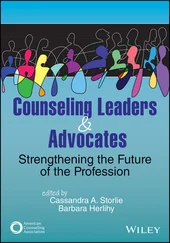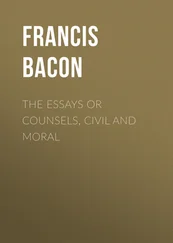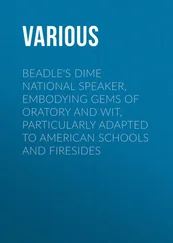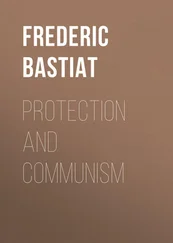Antiracism Is Not Critical Race Theory
In recent years, the concept of antiracism has been used synonymously with critical race theory (CRT), a theory originated by Derrick Bell, a legal scholar who argued that traditional approaches to legal studies lacked the voice and narratives of marginalized persons (Delgado, 1995; Delgado & Stefancic, 2000). Bell described CRT as a form of law that speaks to the social and cultural contexts in which individuals live. Critical race theorists view racism as a normal part of American society that is woven into the fabric of all U.S. systems in such a way that people of all races see it as normal. The dominant strategy of CRT is to unmask and expose racism and racist practices and policies. As a matter of fact, CRT led to the study of microaggressions, subtle insults (verbal, nonverbal, and/or visual) directed toward people of color, often automatically or unconsciously. Antiracism, in contrast, denotes actions to dismantle racist practices, policies, and structures. Following is an excerpt from one of Derrick Bell’s (1995) law review papers explaining how antiracism intersects with CRT:
Critical race theory writing and lecturing is characterized by frequent use of the first person, storytelling, narrative, allegory, interdisciplinary treatment of law, and the unapologetic use of creativity. The work is often disruptive because its commitment to antiracism goes well beyond civil rights, integration, affirmative action, and other liberal measures. This is not to say that critical race theory adherents automatically or uniformly “trash” liberal ideology and method (as many adherents of critical legal studies do). Rather, they are highly suspicious of the liberal agenda, distrust its method, and want to retain what they see as a valuable strain of egalitarianism which may exist despite, and not because of, liberalism. (p. 899)
Antiracism and School/Community Counseling
With the murder of George Floyd coupled with the rise of white supremacist groups (e.g., the Proud Boys, the Aryan Brotherhood), counseling professionals are paying increased attention to issues of racism and are articulating a desire to be antiracist, in particular in school settings (American School Counselor Association [ASCA], 2021). Shifting to antiracist counseling requires more than focusing on multiculturalism, diversity, and inclusion. It involves more than collecting data, reading books by Black authors, and empathizing with Black and Brown clients. Being an antiracist counselor requires interrogating one’s racial consciousness and the impact of one’s behaviors in counseling relationships with Black and Brown students or clients. Counselors must name the importance of the links among race, racism, and counseling. Counseling, in particular school counseling, is a racialized process, given the racist practices and policies that are embedded in schools and communities. Thus, if counselors do not address embedded racist and biased practices and policies in schools, then they are likely to reproduce racial structures and hierarchies in their practice.
Lori Gottlieb (2020) wrote a revealing, poignant opinion piece in The Washington Post titled “I Thought I Was an Antiracist Therapist. Then I Looked More Closely.” Gottlieb admitted that her graduate training in cultural competence did not prepare her to delve deeply into the racism of her patients as well as her own racist beliefs and ideas. She gave the following example:
I’m seeing a black patient, a woman who looks a lot like me on paper—we’re both professionals, we went to the same college, we’re moms of kids about the same ages. And because of our similarities—and also my unstated reluctance to go there—we tacitly collude in pretending that she isn’t black and I’m not white. Until one day she tells me about an incident at her company, where she is one of the few black executives: Her white boss chose a white woman for a promotion that she had fully expected to earn, and my patient would have been the first black executive to be promoted to this level. The white woman was not nearly as experienced or qualified, my patient tells me. And she says this is the story of her life—a story she hadn’t told me about until that day.
We may have a lot in common, but unlike her, I had never walked into a classroom at our college and wondered if I had to prove myself worthy of being there; I hadn’t sat in the dining hall and overheard someone talking about “affirmative-action” students who got into the school more easily; I never stepped foot in a job interview and watched someone try to cover her surprise because, based on my résumé, she had expected my skin to be lighter. (Gottlieb, 2020, paras. 6–7)
An antiracist perspective in counseling is long overdue. Even professional associations are joining the call. ACA (2020) issued the following statement on antiracism:
Racism, police brutality, systemic violence, and the dehumanizing forces of oppression, powerlessness, and White supremacy have eroded the very fabric of humanity which ideally binds our society together. Macrolevel systemic racism extends to disparities in institutional policies and procedures in physical and mental healthcare, education, the judicial system, employment, sports and entertainment, and the brutal violence of law enforcement. These larger societal oppressions lead to inaccessibility to resources and social marginalization, which descend finally to individual racist attitudes, implicit biases, stereotypes, microaggressions, and even death. The ongoing and historical injustices are not acknowledged by those who want to be in power or protect their entitlements. Some who do acknowledge, do so reactively, temporarily, or superficially and thus, no meaningful change occurs. Anti-Black racism is often reframed as accidental, an unfortunate incident, or as the criminality of the victim.
Words cannot truly capture our feelings. We are angry, exhausted, grieving, suffering, furious, and in despair. The American Counseling Association is pained by the murders of George Floyd, Rayshard Brooks, Ahmaud Arbery, Breonna Taylor, Tamir Rice, Eric Garner, Sandra Bland, Michael Brown, and countless other Black/African Americans who unfortunately remain nameless. We stand in solidarity with our Black siblings in denouncing the historical legacy and destruction caused by institutionalized racism and violence against Black people, perpetuated at the hands of law enforcement, the hatred bred of White supremacy, the deafening silence of dehumanizing and complicit inaction to address these systemic ills within our society. As counselors, we listen, we empathize, and agree with protesters that when absolute justice is established, peace will follow. Enough is enough, we cannot continue to watch fellow Black Americans being murdered, as the very life force is suffocated out of them.
The American Counseling Association is built on enduring values and a mission that promotes: human dignity and diversity, respect, the attainment of a quality of life for all, empowerment, integrity, social justice advocacy, equity, and inclusion. If we remain silent, and do not promote racial justice, these words become harmful and meaningless for our members and the counseling community. Given the rapidly evolving double pandemic of COVID-19 and the continued exposure of Black people to institutionalized racism, ACA wants to be clear about where we stand and the ongoing actions we will take. As proactive leaders, counselors, mentors, supervisors, scholars, and trainers we will break away from this structure of racism trauma, and the violence born on the necks of Black people.
Our stance is: Black Lives Matter. We have a moral and professional obligation to deconstruct institutions which have historically been designed to benefit White America. These systems must be dismantled in order to level the playing field for Black communities. Allyship is not enough. We strive to create liberated spaces in the fight against white supremacy and the dehumanization of Black people. The burden of transgenerational trauma should not be shouldered by Black Americans even though they have remained resilient.
Читать дальше
